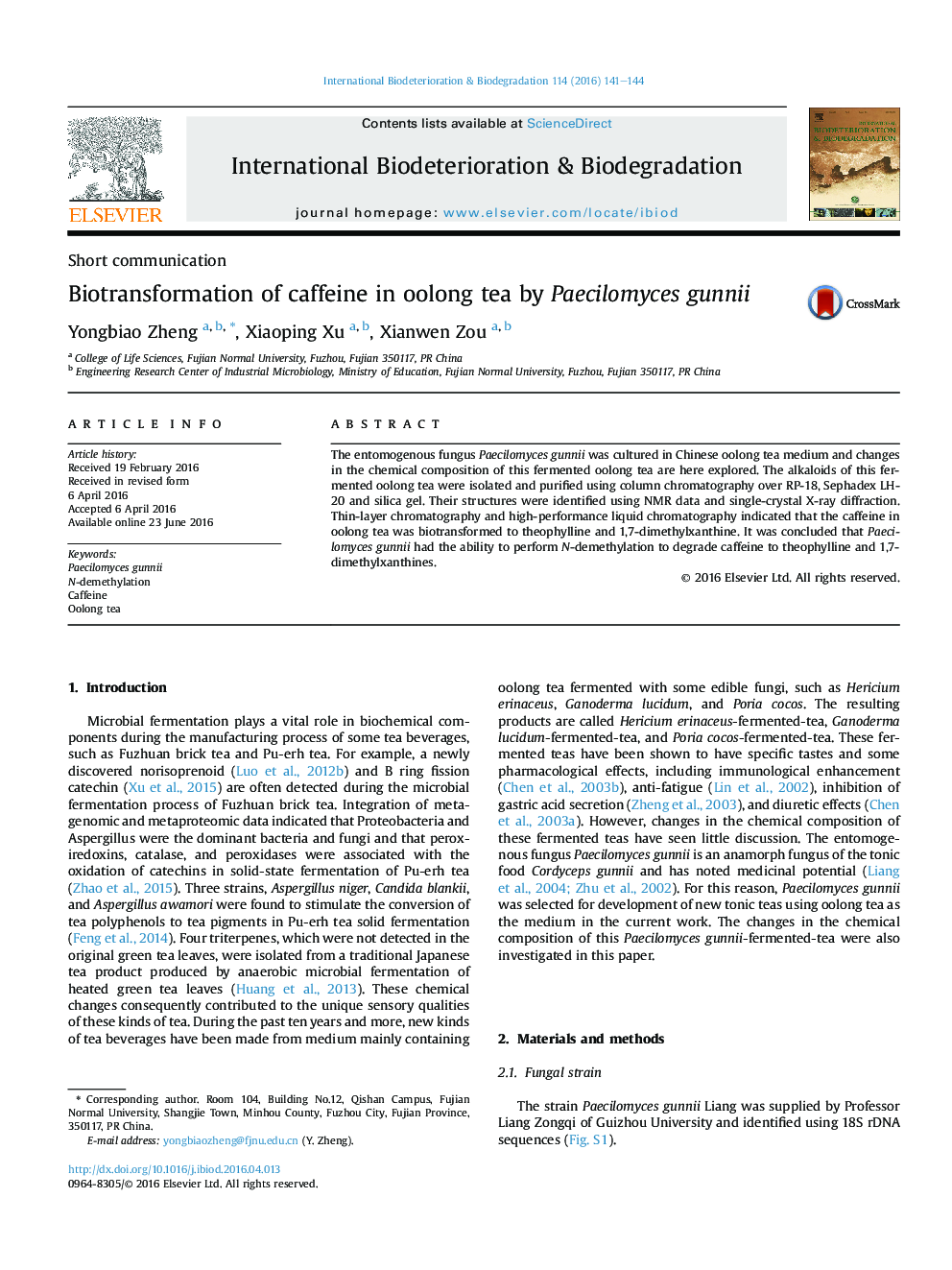| کد مقاله | کد نشریه | سال انتشار | مقاله انگلیسی | نسخه تمام متن |
|---|---|---|---|---|
| 4364129 | 1616303 | 2016 | 4 صفحه PDF | دانلود رایگان |
• The entomogenous fungus Paecilomyces gunnii could be cultured in Chinese Oolong tea medium.
• The caffeine of Chinese Oolong tea could biotransformed to theophylline and 1,7-dimethylxanthines.
• The Paecilomyces gunnii had the ability to perform N-demethylation.
The entomogenous fungus Paecilomyces gunnii was cultured in Chinese oolong tea medium and changes in the chemical composition of this fermented oolong tea are here explored. The alkaloids of this fermented oolong tea were isolated and purified using column chromatography over RP-18, Sephadex LH-20 and silica gel. Their structures were identified using NMR data and single-crystal X-ray diffraction. Thin-layer chromatography and high-performance liquid chromatography indicated that the caffeine in oolong tea was biotransformed to theophylline and 1,7-dimethylxanthine. It was concluded that Paecilomyces gunnii had the ability to perform N-demethylation to degrade caffeine to theophylline and 1,7-dimethylxanthines.
The entomogenous fungus Paecilomyces gunnii could be cultured in Chinese oolong tea medium. Paecilomyces gunnii had the ability to perform N-demethylation to degrade caffeine to theophylline and 1,7-dimethylxanthines by the assay of thin layer chromatography and high perform liquid chromatography.Figure optionsDownload as PowerPoint slide
Journal: International Biodeterioration & Biodegradation - Volume 114, October 2016, Pages 141–144
